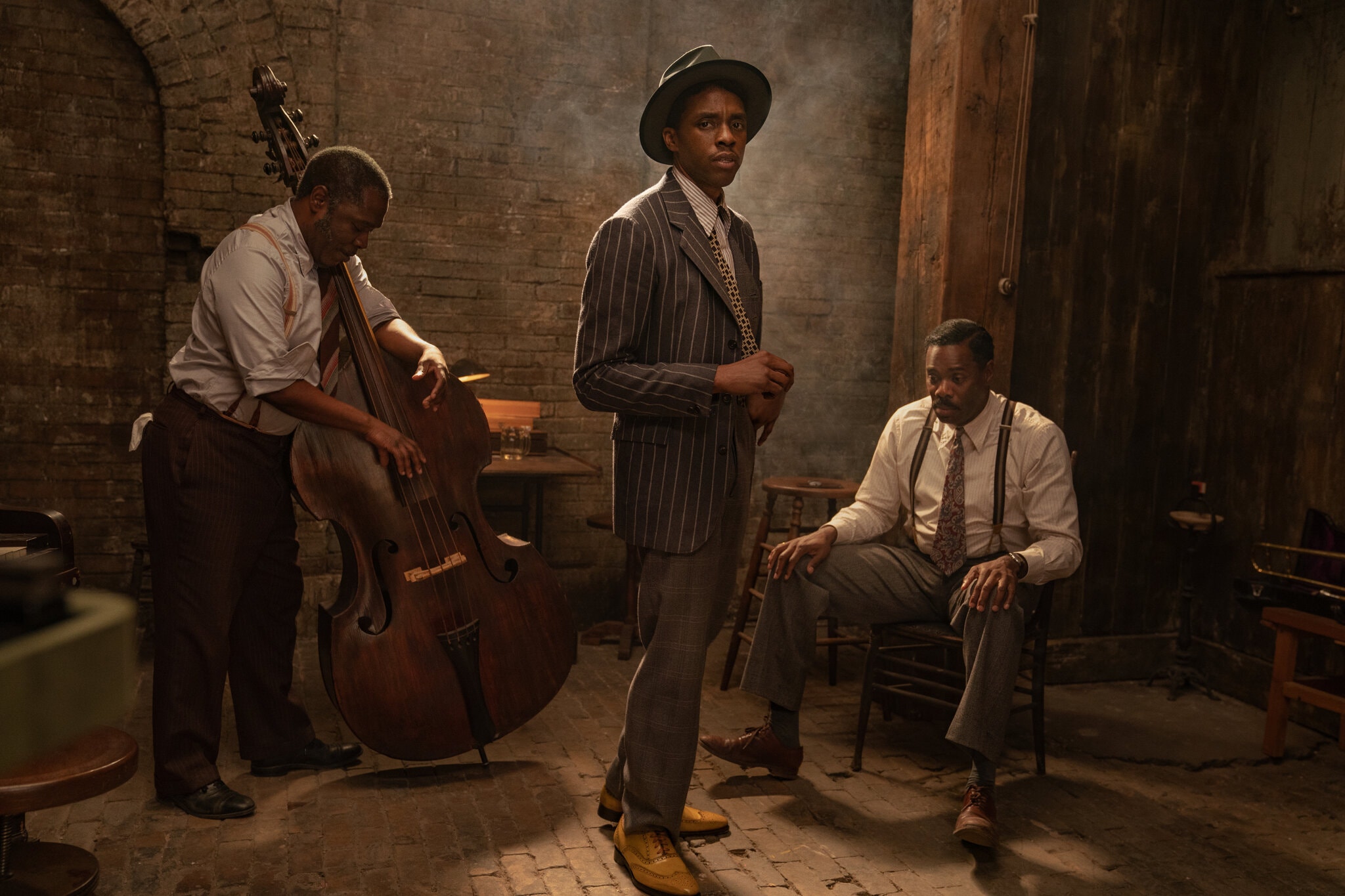Ma Rainey’s Black Bottom director George C. Wolfe and screenwriter Ruben Santiago-Hudson may not bring the same cinematic eye that Denzel Washington infused in his 2016 adaptation Fences, but their take on August Wilson’s 1984 play, tackling the 1920s in Wilson’s decade-spanning “Pittsburgh Cycle,” is a faithful one. Featuring standout performances by both Wilson stalwart Viola Davis as the titular Ma and Chadwick Boseman as her trumpet player Levee, the transition from stage to screen is a compelling one.
A reliably stoic actor in his sadly truncated career, Boseman steals the film, showcasing a twitchy high-wire act rarely seen in his previous work. He’s not only the best thing in the film, which also features Davis at her most flamboyant, but it’s the best work he’s ever done, a towering achievement in his final film role.
Liberally adapting the real Ma Rainey’s biography, Wilson’s play and Wolfe’s film concerns an older Ma’s recording session in Chicago, as her white manager Irvin (Jeremy Shamos) attempts to mediate between Ma’s diva-like personality, and her instance on having her stuttering nephew Sylvester (Dusan Brown) record an introduction to the titular “Black Bottom” song, and the producer Sturdyvant’s (Jonny Coyne) increasing impatience with Ma. Circling around these power plays, Ma’s band, led by the reliable Cutler (Colman Domingo) and Toledo (Glynn Turman), practice in the basement,. Meanwhile, Levee disparages Ma, envisioning a better life for himself, rooted in forming his own band and abandoning the old style of Ma’s music for something more upbeat.
Often transitioning between Ma’s business dealings with Irvin and Sturdyvant, and the Levee’s monologuing to the fellow band members about his dreams, Santiago-Hudson’s adaptation invokes the claustrophobia of the recording studio and the theater, as the players circle each other, revealing tidbits about their lives and ambitions. Ma Rainey is very much a filmed play, for better and worse, never truly opening up the proceedings. Yet Wolfe compensates, often filming Davis and Boseman in close up, as cinematographer Tobias A. Schliessler’s camera bounces around the room, mimicking Levee’s abundant energy and matching the rhythm of the jazz compositions that the band is performing.
Davis, who towers over the entire film despite having somewhat limited screen time, is a centrifugal force. With a face heavily caked in make-up and domineering presence over anyone in the room, her interpretation of Ma is layered with affectation, a far cry from her more submissive Oscar-winning role in Fences, but nevertheless impressive. Ma is the star of the studio and she makes that fact known throughout.
However, despite Ma’s marquee name, Boseman’s Levee emerges as the real star of the film. He bounces around in scenes, his ambition barely contained within his body as he wildly paces the practice room. If Ma is a sturdy presence, signifying the birth of jazz, Levee portends its future, with his upbeat compositions and discordant nature. It’s a mesmerizing performance that could devolve into showiness in lesser hands, but Boseman imbues Levee with enough naturalism to sell his numerous monologues.
The push-pull between Ma and Levee make up the bulk of the film, as the two constantly teeter between respect and contempt. As with all of Wilson’s work, Ma and Levee serve as analogs for the larger Black experience within the 1920s, as the manipulation of jazz by white producers and musicians comes to the forefront in the latter half of the film. Like Fences, Ma Rainey is an actor’s showcase, yielding exemplary work from Davis and tragically indicating a complex range from Boseman in a career that was just beginning to blossom. In short, it’s one of the best films of the year.
Ma Rainey’s Black Bottom is currently in select theaters and will premiere on Netflix on December 18th.

